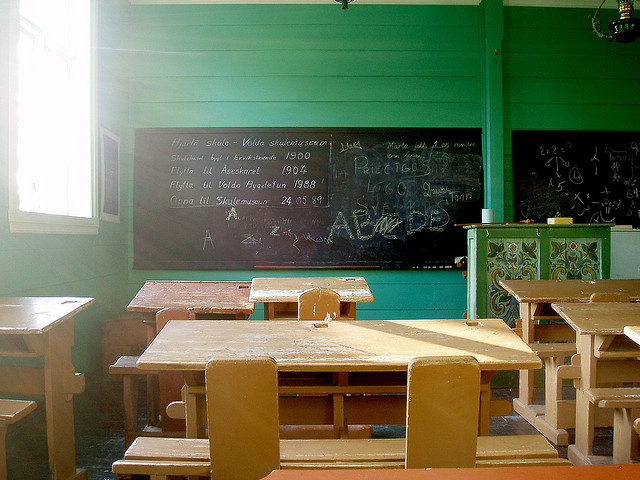
In the closing days of its November term, the Illinois Supreme Court agreed to decide The Board of Education of the City of Chicago v. The Illinois Educational Labor Relations Board. Board of Education presents the following issue: did the Illinois Educational Labor Relations Board err in finding that the Chicago Board of Education was guilty of an unfair labor practice when it refused to arbitrate the Chicago Teachers Union’s grievances over the Board’s practice of placing “Do Not Hire” designations in the personnel filed of certain non-renewed probationary appointed teachers? Division FIve of the First District Appellate Court reversed the Board’s finding of an unfair labor practice, holding that the “Do Not Hire” notices were exempt from arbitration on the grounds that they fell within the Board’s managerial discretion.
The Union and the Board were parties to a Collective Bargaining Agreement from 2000 to 2012. The Board allegedly informed the Union in 2010 that it would begin placing a Do Not Hire designation in the files of probationary appointed teachers who had been nonrenewed twice, or given an unsatisfactory performance rating. The Union filed four grievances – three on behalf of individual nonrenewed teachers, and one on behalf of the entire class of nonrenewed teachers collectively – and demanded arbitration.
The Board refused to arbitrate, and the Union responded by filing an unfair labor practice charge. Following an investigation, the Executive Director of the Illinois Educational Labor Relations Board issued a complaint. The parties filed a stipulated record in lieu of a hearing, and in December 2012, the IELRB issued a written opinion and order finding that the Board of Education had violated Section 14(a)(1) of the Educational Labor Relations Act.
The Appellate Court reversed. A school district’s refusal to submit to binding arbitration under a Collective Bargaining Agreement is a violation of Section 14(a)(1) of the Act, which prohibits employers from “[interfering, restraining or coercing employees in the exercise of the rights guaranteed under this Act.” 115 ILCS 5/14(a)(1). However, refusal is considered an appropriate method to challenge the arbitrability of the issue. There are two grounds for challenging arbitrability: (1) there is no contractual agreement to arbitrate; or (2) the dispute is not arbitrable under Section 10(b) of the Act (115 ILCS 5/10(b)).
The court found that arbitration was part of the bargaining process, so a school district could not be required to arbitrate a matter that is excluded from the bargaining process. The first question involved in the analysis is whether an issue is one of wages, hours and terms and conditions of employment. If not, then the inquiry ends and the matter is not subject to bargaining. If so, then the Court next asks whether the matter is one of inherent managerial authority. If not, then the matter must be arbitrated. If so, then the court weighs the benefits of bargaining against the burden on the employer’s authority.
The Court concluded that the Do Not Hire designations ultimately went to hiring decisions, which are a matter of managerial discretion rather than wages, hours or terms and conditions of employment. Therefore, the matter was not subject to arbitration or bargaining. The Court found support for its conclusion in Section 10-22.4 of the Illinois School Code (105 ILCS 5/10-22.4), which provides that a district may dismiss a teacher whenever he or she “is not qualified to each, or whenever, in its opinion, the interests of the schools require it.” Since the grievances could not be arbitrated without conflicting with the Board’s statutory discretion under Section 10-22.4, the Court concluded that the matter was not arbitrable.
Presiding Justice Robert Gordon dissented. Although Justice Gordon agreed that the decision of whether the specific teachers at issue should be rehired was within the Board’s exclusive jurisdiction, he concluded that the issue of the Do Not Hire designations was separable from that question. Noting that the Collective Bargaining Agreement broadly defined a grievance as a “complaint involving a work situation,” he concluded that since the designations allegedly involved below-par work, the designations were an arbitrable matter.
We expect Board of Education to be decided in eight to ten months.
Image courtesy of Flickr by Stlan Rødven Elde (no changes).
